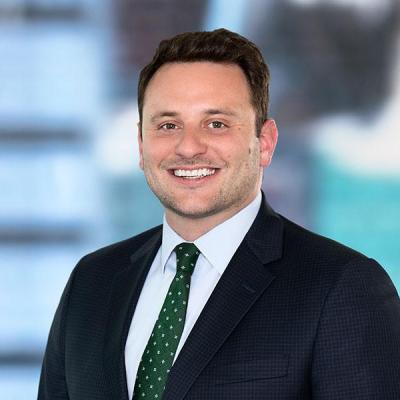As Walsh Awaits Confirmation Vote, DOL Priorities Take Shape
Last week, the Senate Committee on Health, Education, Labor, and Pensions voted 18-4 to advance Boston Mayor Marty Walsh’s nomination for labor secretary. The bipartisan approval signals a non-controversial confirmation vote of the full Senate. When that occurs, Secretary-designate Walsh will take over a department that is front and center in the nascent Biden administration. Executing White House priorities including the federal response to the COVID-19 pandemic, addressing the climate crisis, and reversing certain Trump era actions, will soon be Walsh’s responsibility. His experience in Massachusetts politics gives a sense of how Walsh will approach his new post.
As political operatives throughout Massachusetts can attest, Walsh possesses a sense of loyalty and propensity for consensus building that will serve him well in the Labor Department. Even among Democratic administrations, President Biden’s White House will be particularly labor friendly. Nominating a labor secretary with real union bona fides – Walsh was a Laborers’ Union member and Building Trades official before being elected mayor – was the president’s first official nod to the unions that supported his candidacy. Keeping organized labor in the fold while working to achieve the president’s priorities will occupy Walsh’s time as a member of the Cabinet. Business leaders from across the country will soon get to know Walsh. Those who have worked with him throughout his career in Boston politics can offer some insight into how he may approach some of the pressing issues facing the Department of Labor.
Pandemic Response
The COVID-19 pandemic was the key differentiator during last year’s presidential race. Biden’s promise of an effective plan to address the virus and its economic fallout included the resources and expertise of the Labor Department. Last week, the Occupational Safety and Health Administration issued new guidance on mitigating and preventing the spread of the coronavirus in the workplace, as directed by the president in an Executive Order issued on his first full day in office. While the guidance is not mandatory, it foretells an emergency temporary standard (ETS), which the White House wants OSHA to issue by mid-March. Employers and trade groups are already working to minimize the cost and disruption of an ETS. Worker advocates will continue to demand maximum protections. The issue will be on Walsh’s desk as soon as he arrives at the Frances Perkins Building.
Undoing Trump
With razor-thin Democratic majorities in both houses of Congress, moving progressive legislative priorities like an increase in the federal minimum wage and paid leave requirements may be a political challenge. However, the Labor Department can exercise its existing regulatory authority, as it did under the Trump administration. President Biden has targeted some of his predecessor’s executive actions regarding labor policy.
In January of last year, the Labor Department issued a final rule adjusting the joint-employer standard under the Fair Labor Standards Act (FLSA). The business-friendly rule, the first such change in over 60 years, has the effect of making fewer workers, like those of franchises, “joint employees.” Joint employers are jointly and severally liable for FLSA wage and hour obligations like the payment of minimum wage or overtime. Though enjoined by a federal court in September, Walsh’s Labor Department is expected to claw back the rule.
In the waning days of the Trump administration, the Labor Department narrowed the standards to determine if a worker is an independent contractor or an employee for the purposes of applying federal law. For companies engaging independent contractors, the new rule provides a helpful tool in fending off class action suits from workers alleging they have been misclassified. As a candidate, Biden pledged to protect these freelancers, but California’s recent experience in this policy area demonstrated how difficult it is for government to defend workers in the gig economy while avoiding unintended consequences.
While it is clear Democrats believe the Trump administration’s executive actions went too far, Biden’s reaction may not be to simply reverse course or revert to pre-Trump status quo. This is where Walsh’s long history of consensus building will prove critical. Where regulations require modernization, it will require a thoughtful balance of interests from workers and their employers.
Climate
A cornerstone of the Biden campaign was a whole-of-government approach to addressing the climate crisis. A critical component of that promise resides in the Labor Department. In his Executive Order on Tackling the Climate Crisis at Home and Abroad, issued last week, Biden established a National Climate Task Force and an Interagency Working Group on Coal and Power Plant Communities and Economic Revitalization. As labor secretary, Walsh will sit on both of these panels.
It will be Walsh’s job to connect unions, in particular the Building Trades to which he is so close, to green jobs. He will need to ensure workers in planet-warming industries are not left behind by Biden’s climate plan. This includes the White House’s ambitious $2 trillion infrastructure plan, a component of which is significant clean energy spending. To be workable, the Labor Department will need to take on an equally ambitious workforce development initiative.
The Biden administration has lofty goals and campaign promises to make good on. Combined with the pressing need to address the COVID-19 pandemic, the Labor Department has a full plate. To lead the department and provide direction to its numerous offices and agencies, Biden has turned to a loyal friend and a career trade unionist. The challenges he will face will test Walsh’s strengths, most of all his ability to bring business and labor together to advance real solutions.


